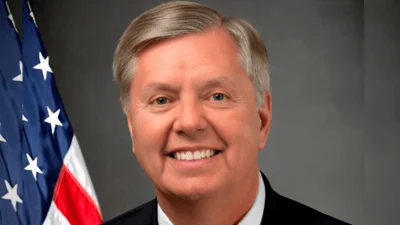Dear Assistant Secretary Oates:
As part of the Senate Finance Committee’s oversight responsibilities we are writing to check on your efforts to reduce the number of improper payments in the Unemployment Insurance program. This issue was the topic of a Committee hearing entitled “Preserving Integrity, Preventing Overpayments, and Eliminating Fraud in the Unemployment Insurance System" last June.
We do want to acknowledge and thank you for your candor in assessing the problem and your interest in addressing the problem. We are sympathetic with the challenges and complexities of administering a large program and are cognizant that states have different procedures, information technology infrastructures and budgetary constraints, which can make uniform implementation of reforms a demanding process.
At the hearing you acknowledged improper payments in the UI system cost taxpayers roughly $17 billion a year and that approximately one-half of the overpayments in the program are controllable. In addition, you said that DOL had an aggressive plan to reduce the overpayment rate with the 11 largest States, and that you thought you could get close to reducing the amount of improper payments by half - roughly $8 billion - within two years.
As the one-year anniversary of the hearing approaches, we hope that you can provide insight regarding DOL’s progress, and report on whether the Claims Resolution Act of 2010, Trade Adjustment Assistance Extension Act of 2011 (P.L. 112-40) and the Middle Class Tax Relief and Job Creation Act of 2012 (P.L. 112-96), which established new incentives and requirements to improve program integrity, have aided you in your efforts. These new program integrity incentives and requirements include;
* Implementing the use of Treasury Offset Program (TOP) to recapture overpayments.
* Implementing the use of the National Directory of New Hires (NDNH) and later closed loopholes in the use of the NDNH.
* Timely reporting requirements for employers.
* State collection of overpayment from other states.
* Requirement that states recover 100% of any erroneous overpayment by reducing up to 100% of the UC benefit in each week until the overpayment is fully recovered.
* Authorization for states to recover Federal Additional Compensation (FAC) overpayments through deductions to regular UC benefits.
* Requirement that state collection of Emergency Unemployment Compensation (EUC) overpayments must be made in the same manner (and subject to the same equity and good conscience criteria if applicable) as a regular Unemployment Compensation overpayment offset under each state's law.
* A 15 percent overpayment penalty when fraud is found.
* Requirement that states charge employer accounts directly if overpayment is due to action or inaction of employer.
Although there are different visions among members of Congress regarding various federal programs, we can all agree that reducing waste in our government is a critical part of good government. Toward that end, we have the following questions:
1. What specific steps has the Department of Labor taken in the past year to reduce the number of overpayments in the UI system?
2. Can you report any measurable reductions in the rate of overpayments from the numbers cited in last year’s hearing?
3. Do you still project that the overpayment rate can be cut in half by 2013? If not, how much do you think it may be cut? Please explain your projections.
4. What other signs of progress can you report regarding efforts at the federal and state level to demonstrate improvement in the program integrity of the unemployment insurance system, particularly the reduction of overpayments?
We look forward to working with you further to address these important issues.
Thank you for your attention regarding this matter.
Sincerely,
Max Baucus Chairman
Orrin Hatch Ranking Member
Source: Ranking Member’s News





